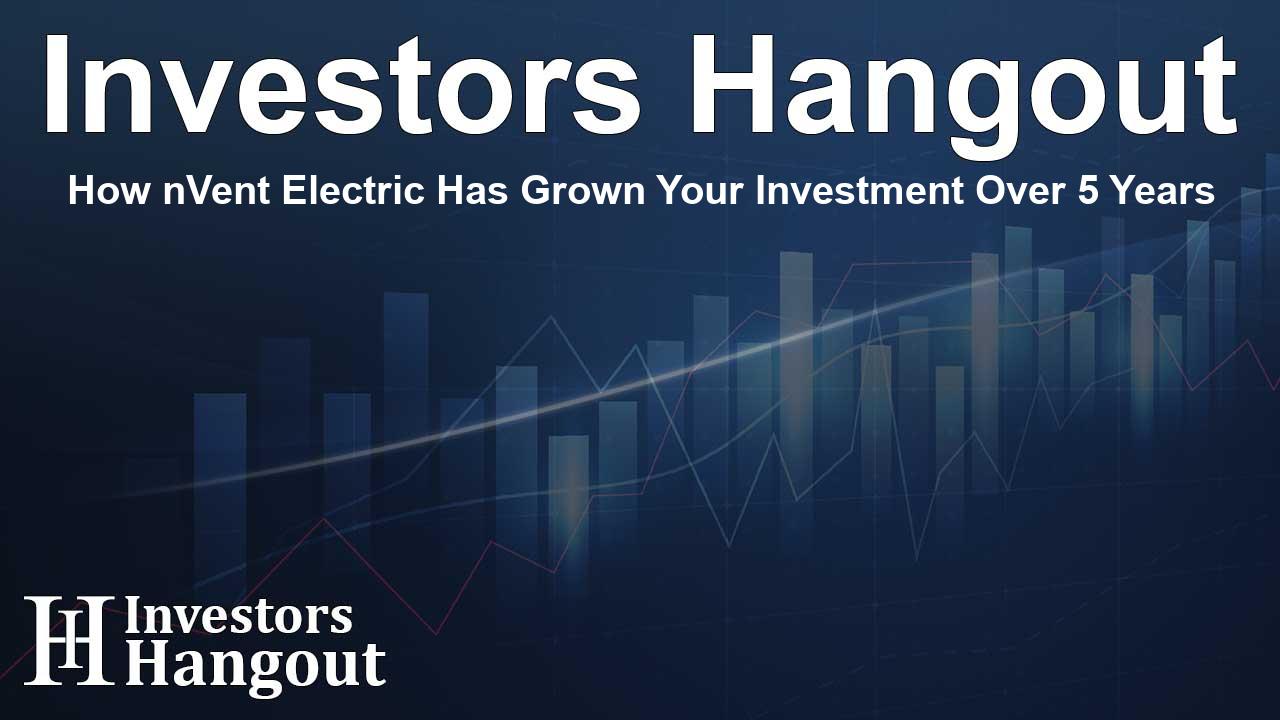How nVent Electric Has Grown Your Investment Over 5 Years

Understanding the Growth of nVent Electric
nVent Electric (NYSE: NVT) has been an exceptional performer in the market over the last five years. Did you know that it has outclassed the market by a significant 24.51% on an annualized basis? This figure reflects an impressive average annual return of 39.12%. With a market cap of approximately $16.42 billion, nVent Electric is a formidable player in its industry.
The Impact of Compounded Returns
If you had invested $100 in NVT stock five years ago, your investment would be worth around $500.75 today, assuming a share price of $99.65 at the time this analysis was written. This highlight showcases the fantastic ripple effect of compounded returns on your investment over time.
A Look at nVent's Performance
When focusing on nVent Electric's performance, it's essential to note how compounded returns contribute to wealth growth. The sustained performance of NVT is likely due to the company’s robust strategies and operational efficiency, which have ensured consistent growth and profitability.
The Power of Long-Term Investing
For investors, this story serves as a powerful reminder that money can grow significantly through the power of time and compound interest. Investing in quality stocks like nVent Electric allows investors to realize substantial returns, especially when they remain patient over the years.
Market Position and Future Outlook
As a key player in the electrical solutions sector, nVent Electric has positioned itself well to leverage ongoing trends in technology and infrastructure development. Experts suggest that the company is poised for further growth, making it a compelling choice for long-term investors.
Key Takeaways for Investors
In conclusion, nVent Electric offers a clear example of how strategic investments and a focus on long-term growth can yield rewarding results. The key insights from this discussion emphasize the importance of compound returns in enhancing investment value over significant periods. As you evaluate your investment options, consider stocks with a proven record of growth like NVT.
Frequently Asked Questions
1. What is nVent Electric's stock symbol?
nVent Electric's stock symbol is NVT, traded on the NYSE.
2. How much would a $100 investment in NVT be worth today?
A $100 investment in nVent Electric five years ago would be worth approximately $500.75 today.
3. What is the significance of compounded returns?
Compounded returns refer to the process where investment earnings increase exponentially over time, significantly boosting the overall value of an investment.
4. What factors contribute to nVent Electric's growth?
nVent Electric's growth can be attributed to its strong performance strategies, operational efficiency, and ability to adapt to market trends.
5. Is nVent Electric a good investment for the future?
With its market position and growth potential, nVent Electric is considered a promising investment for those looking at long-term gains.
About The Author
Contact Kelly Martin privately here. Or send an email with ATTN: Kelly Martin as the subject to contact@investorshangout.com.
About Investors Hangout
Investors Hangout is a leading online stock forum for financial discussion and learning, offering a wide range of free tools and resources. It draws in traders of all levels, who exchange market knowledge, investigate trading tactics, and keep an eye on industry developments in real time. Featuring financial articles, stock message boards, quotes, charts, company profiles, and live news updates. Through cooperative learning and a wealth of informational resources, it helps users from novices creating their first portfolios to experts honing their techniques. Join Investors Hangout today: https://investorshangout.com/
The content of this article is based on factual, publicly available information and does not represent legal, financial, or investment advice. Investors Hangout does not offer financial advice, and the author is not a licensed financial advisor. Consult a qualified advisor before making any financial or investment decisions based on this article. This article should not be considered advice to purchase, sell, or hold any securities or other investments. If any of the material provided here is inaccurate, please contact us for corrections.
